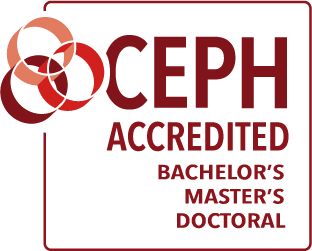These MPH Foundational Competencies, updated in August 2021, were established by the Council on Education for Public Health (CEPH) as a framework for monitoring the quality of student learning, promoting student success, and advancing the field of public health. The 22 foundational competencies are organized across eight themes of professional practice.
Evidence-Based Approaches to Public Health
-
Apply epidemiological methods to settings and situations in public health practice
-
Select quantitative and qualitative data collection methods appropriate for a given public
health context
-
Analyze quantitative and qualitative data using biostatistics, informatics, computer-based programming, and software, as appropriate
-
Interpret results of data analysis for public health research, policy, or practice
Public Health and Health Care Systems
-
Compare the organization, structure, and function of health care, public health, and regulatory systems across national and international settings
-
Discuss the means by which structural bias, social inequities, and racism undermine health and create challenges to achieving health equity at organizational, community, and systemic levels
Planning and Management to Promote Health
-
Assess population needs, assets, and capacities that affect communities' health
-
Apply awareness of cultural values and practices to the design, implementation, or critique of public health policies or programs
-
Design a population-based policy, program, project, or intervention
-
Explain basic principles and tools of budget and resource management
-
Select methods to evaluate public health programs
Policy in Public Health
-
Discuss the policy-making process, including the roles of ethics and evidence
-
Propose strategies to identify stakeholders and build coalitions and partnerships for influencing public health outcomes
-
Advocate for political, social, or economic policies and programs that will improve health in diverse populations
-
Evaluate policies for their impact on public health and health equity
Leadership
-
Apply leadership and/or management principles to address a relevant issue
-
Apply negotiation and mediation skills to address organizational or community challenges
Communication
-
Select communication strategies for different audiences and sectors
-
Communicate audience-appropriate (i.e., non-academic, non-peer audience) public health content, both in writing and through oral presentation
-
Describe the importance of cultural competence in communicating public health content
Inter-professional Practice
-
Integrate perspectives from other sectors and/or professions to promote and advance population health
Systems Thinking
-
Apply a systems thinking tool to visually represent a public health issue in a format other than standard narrative

